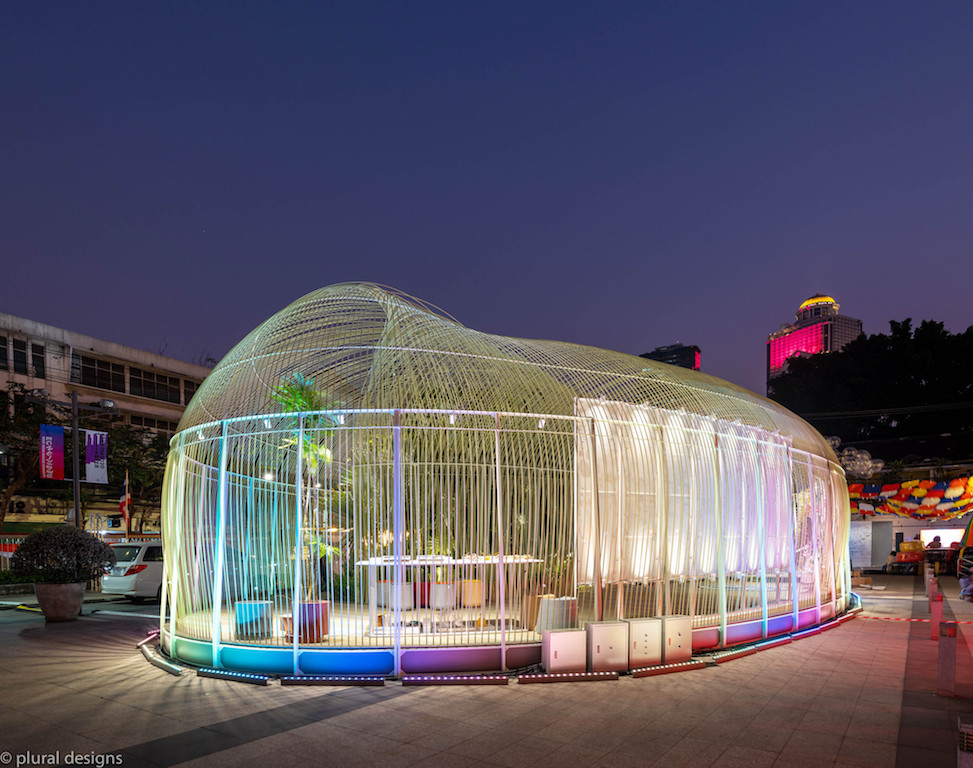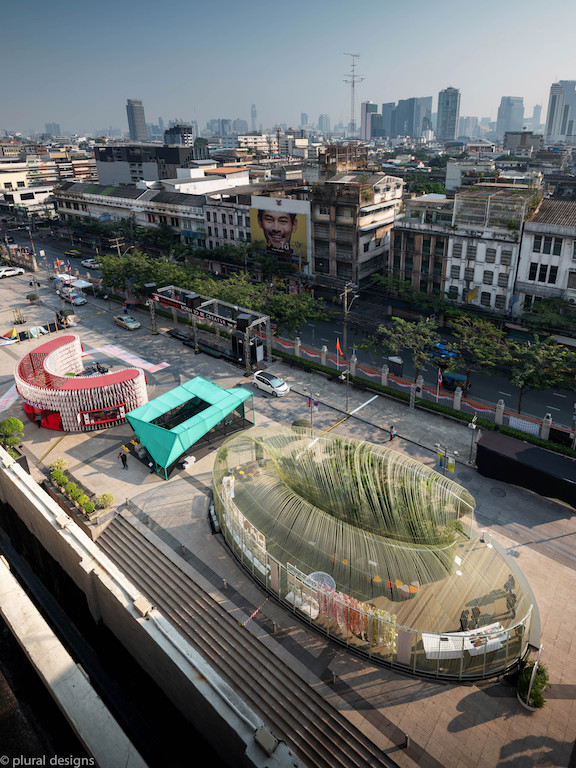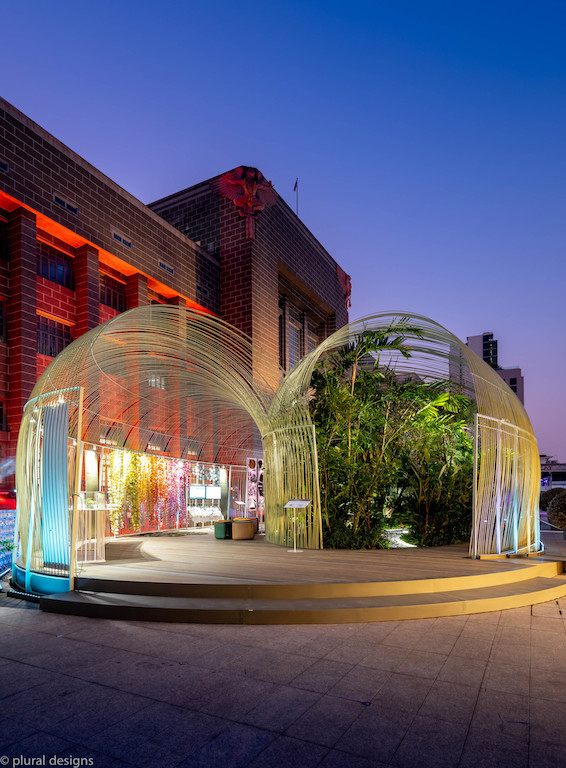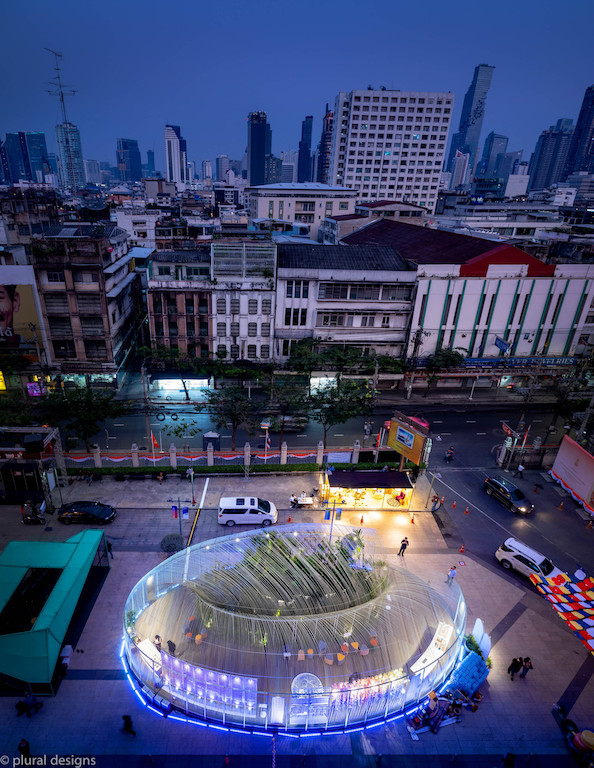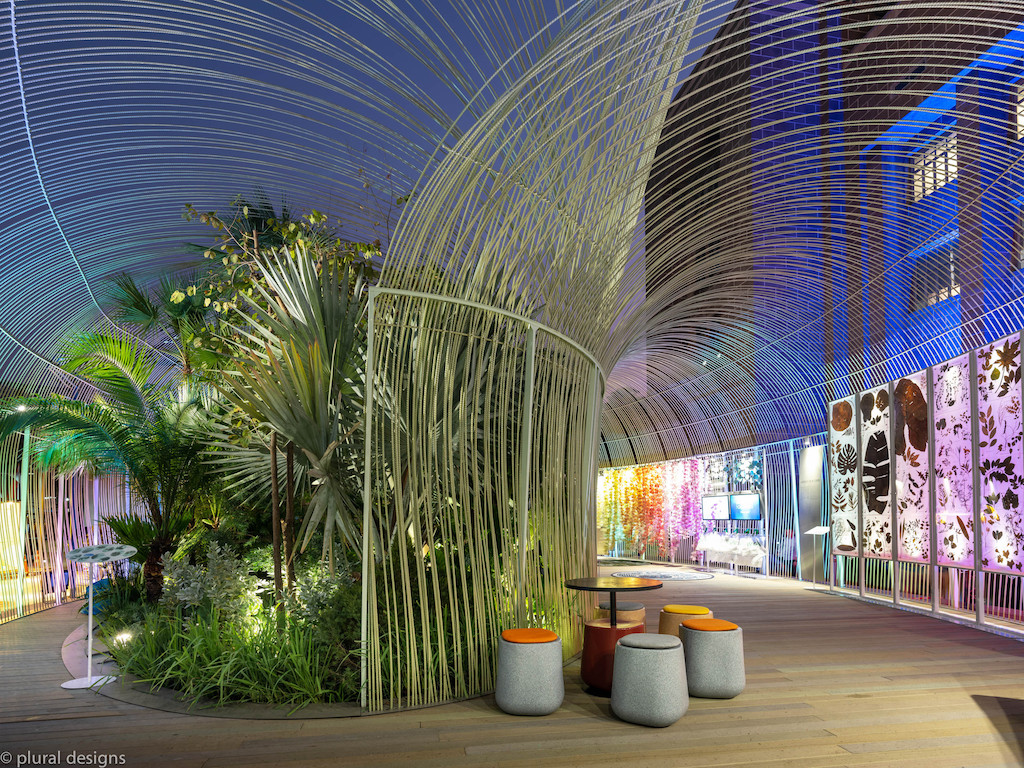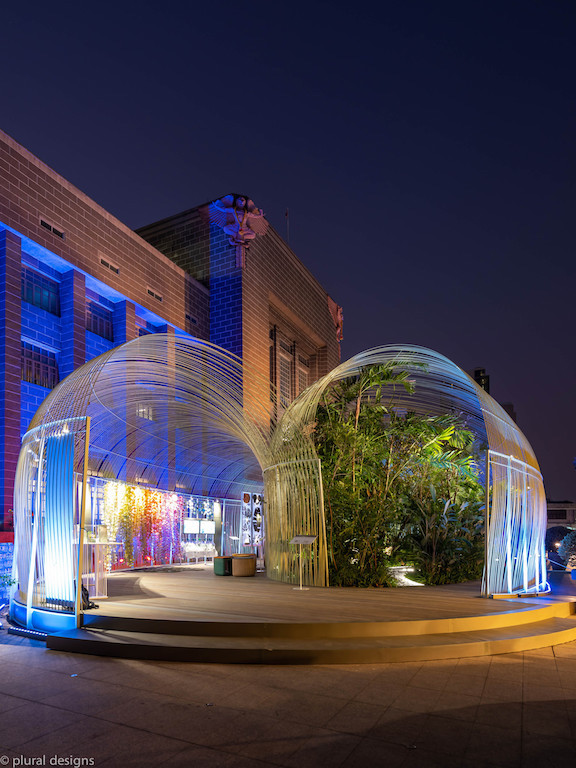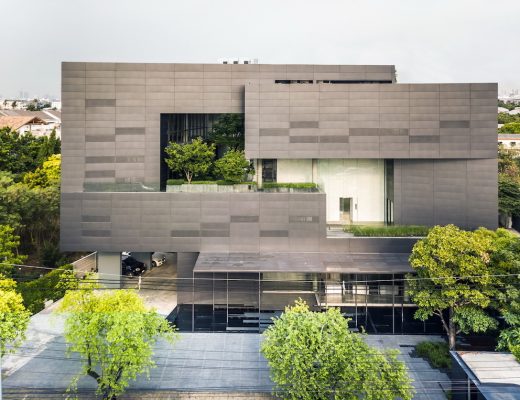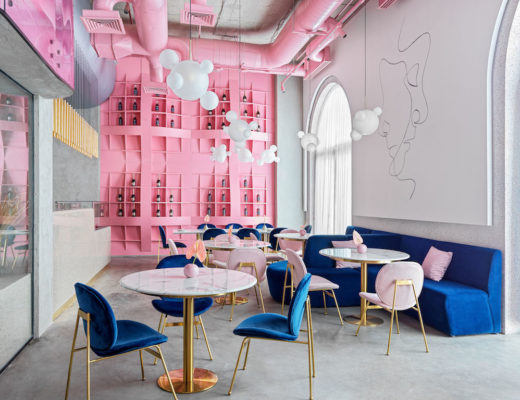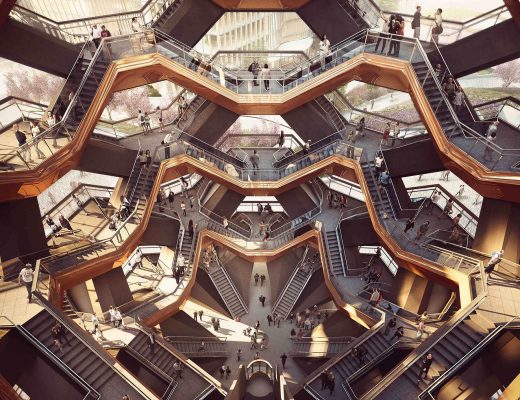The installation called the Everlasting Forest Pavilion by Plural Designs Company demonstrates the intertwining of humans and nature. Presented during Bangkok Design Week 2020, it refers to the rampant urbanisation because of economic and social growth.
“We are constantly facing unpredictable climate and changing environment, which affects the way a city is developed in the future. As a result, future cities will focus on the development of life quality and environmental sustainability together with maximising living spaces and modern infrastructures. Everlasting Forest is a space demonstrating the co-habitation between man-made structures and their surrounding environment including buildings, green spaces, and daily life objects, whose resources and waste are all sustainably managed and utilised.” – Plural Designs Company
The design approach for the 172m² Everlasting Forest by architects Piboon Amornjiraporn, Thitipon Phayakkabut, Apisorn Phalking reflects an adaptation and cohabitation with nature. The design process in collaboration between experts from various disciplines who propose materials, innovation, and new ideas which create an everlasting balance. The materials used in the project are environmentally friendly, made from material wastes and are biodegradable. They can be reused after the project finishes. The project also builds a new experience for the audience, allowing it to understand the co-living of human and nature. The exhibition showcases knowledge about different concepts and materials exhibited in a tunnel. The tunnel gradually expands to cover a walkway and a green space. This imitates the co-living between man-made and natural materials.
The core idea of this project centres on the BCG model, which includes bio-economy, circular economy, and green economy. Bio-economy focuses on a mindful use of bioresources, which is linked to circular economy which looks at the production process and a circular use of resources. Green economy promotes an environmentally friendly approach to the production of goods and services.
In order to preserve the environment following the BCG model, the process begins with a selection of materials and production and fabrication processes which least affect the environment. The materials chosen should be reusable or biodegradable so that the amount of waste from the production and fabrication processes is reduced. This is also to raise awareness in terms of achieving a balance in the coexistence of natural and synthetic materials.
Everlasting Forest is part of the Bangkok Design Week 2020 and a collaborative project between creative practitioners at the Creative Economy Agency (public organisation), PTT Global Chemical Co., Ltd. and Plural designs company limited, who work together to propose an alternative for the development of future cities and sustainable materials for the future of the wider public.
Photos: Anuphan Sukhapinda
You might also like:
Installation by Hanoi’s MIA Design Studio aims to connect people with architecture and heritage
Bonfire installation by MAT Architects in Shenzhen references collective space and ideas
MAD Architects completes installation of Hutong Bubble 218 project in Beijing
100 Architects designs urban public intervention in the form of playscape in Shanghai’s Pudong area

